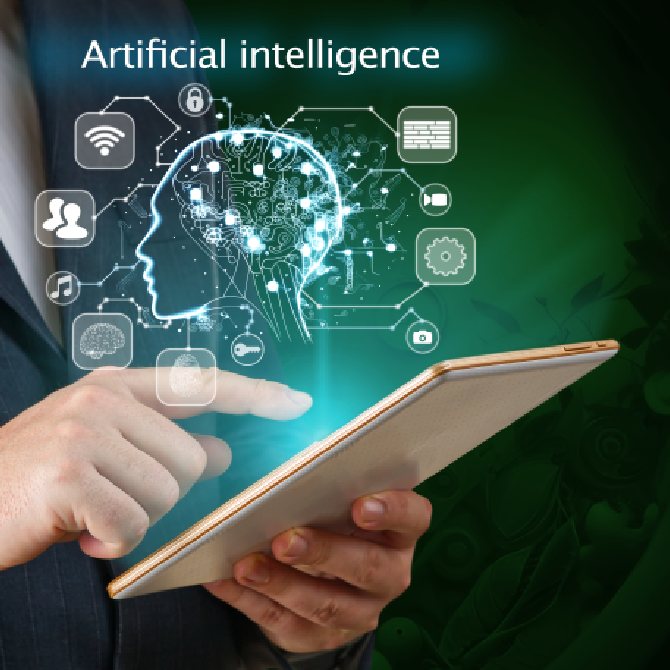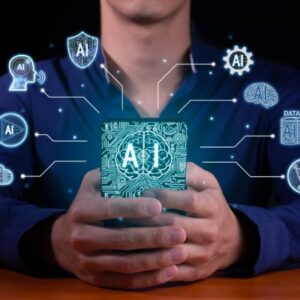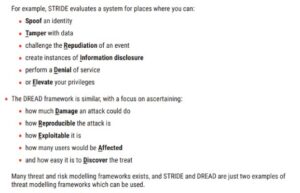
B2B marketing has come a long way from traditional interactions to remote human interaction to digital and now to AI. Between the need for personalized content, b2b digital marketing channels, upcoming tools, budget limits, and the pressure to crack it, marketers have a lot to juggle.
But AI has swiftly entered the scene, assisting b2b marketers in giving what their audiences demand – personalized communication.
Unfortunately, not everything that shines is gold. At the Paris VivaTech event, Elon Musk said, “There is a real danger for digital superintelligence having negative consequences.” And this has some truth to it.
In this blog, we will explore the upcoming trends in AI-Powered B2B marketing and the dangers it can invite!
Also Read: Generative Engine Optimization (GEO): Key Factors & How to Do It?
Let’s start!

Top 3 Emerging Trends in AI-Powered B2B Marketing
1. Hyper-Personalization
We all know the deal when it comes to personalized content. Then be it for email marketing, social media strategies, blogs, or WhatsApp broadcasts. You will be surprised to know how much more revenue companies can generate with personalized marketing tactics. A whopping 40%.
But audience interest is dynamic, and they want something novel every now and then.
AI platforms such as ChatGTP, Jasper, Anyword, and more help marketers work faster and more effectively, reducing the time it takes to generate engaging, brand-specific, personalized content. Thus helping marketers make the most out of their B2B digital marketing channels.
Also Read: 18 Best AI Tools For Video Editing and Creation

2. Account-Based Marketing
AI is celebrated for its ability to gather and analyse data from target profiles. Coupled with its ability to generate personalized content, AI can strengthen a company’s b2b marketing strategy framework and maximize its effectiveness by allowing them to identify high-value target accounts, create relevant content, and determine the most effective channels to engage decision-makers within those accounts.
In fact, 71% of companies are expected to increase their spending on account-based marketing in 2023.
3. Automated Lead Scoring and Nurturing
Every marketer knows the importance of lead scoring and nurturing. Turning a lead into a potential customer and directing your efforts toward leads who are most likely to buy is an art that requires deep understanding, especially when 70% of B2B leads still need to be ready to buy.
While nurturing requires continuous communication, scoring relies heavily on the use of data such as:
- Explicit data
- Implicit data
- Negative scoring
The benefits are juicy. However, the work that goes into the process could take up a lot of space. In fact, there are 15-20 attributes in an average lead scoring model. But thanks to the power of artificial intelligence, marketers can easily streamline the process and focus their effort on the middle of their marketing funnel.
AI can automate lead nurturing processes by delivering personalized content and recommendations based on prospect behavior and preferences.
Furthermore, AI-powered lead-scoring algorithms can assess the quality of leads based on various factors, such as demographic data, online behavior, and engagement levels. By automating lead scoring, marketers can prioritize high-quality leads and focus their efforts on prospects most likely to convert.
Top 3 Dangers in AI-Powered B2B Marketing
1. Overpersonalization and Intrusion
Don’t get us wrong. Hyper-personalization is the key to a b2b marketing strategy framework. But going overboard can invite a lot of trouble. For instance, intrusion and overpersonalization
Individuals love their privacy and if they feel that their personal information is being excessively used or shared without their consent, it can erode trust and lead to a negative perception of the brand.
Take, for example, targeted ads. Targeted ads rely on data from a user’s web activity. Now, when they search for something online, it gets picked up. And the next time they surf online, they will start seeing ads related to that particular search. This may make some users feel like they’re being watched and tracked.
Somewhat similar is the case with social media apps like Instagram. In order to show personalized content, the algorithm studies what the user likes and engages with. Now, the user does get relevant content that they like. But are they getting diverse content? Most likely not. Thus overpersonalization can lead to content saturation such that all your users may see is homogeneous content.
Remember: Too little, and you will be left behind. Too much, and you will have to face some bitter consequences.

2. Bias and Discrimination
AI algorithms are only as unbiased as the data they are trained on. In fact, biases are introduced to AI unintentionally by us. If the training data contains inherent biases, such as gender or racial biases, AI systems can inadvertently perpetuate or amplify those biases in marketing campaigns. Resulting in discrimination.
Take, for example, Amazon’s experience with AI bias. Back in 2015, Amazon realized that its hiring algorithm for employees was biased against women. Reason? The data the algorithm was trained on was from the past 10 years, during which most applicants were men.
What’s the solution? Regular assessment to mitigate biases in AI models to ensure fairness and prevent discrimination. For instance, threat model frameworks like STRIDE or DREAD evaluate the presence and intensity of the threats.

3. Lack of Transparency
AI models, particularly complex ones like deep learning neural networks, can be challenging to interpret and explain. This lack of transparency raises concerns about how AI-driven decisions are made, making it difficult to understand or challenge the outcomes.
As a result, you can probably never be 100% sure of an AI-generated b2b digital marketing strategy template, communication, or analysis.
Wrapping Up
Artificial intelligence is a double-edged sword. Relying on it for assistance will always be a good decision. But over-reliance? Not so good.
Besides, if we know one thing for sure, it’s this: AI models are as good as the data you feed them and the human oversight they receive. Therefore, by approaching AI-powered B2B marketing responsibly, businesses can harness its benefits while minimizing the associated risks.
If you are looking for a partner who will help you understand the role of AI in B2B marketing, look no further. With over 34 years of experience, Impulse Digital is a legacy of creative ideation with a mix of young minds that work tirelessly to keep themselves ahead of the curve, including the use case for AI. We will be happy to answer all your questions and help you decide if AI is the right way to go. We are your one-stop solution to growing your brand online. So why wait?


